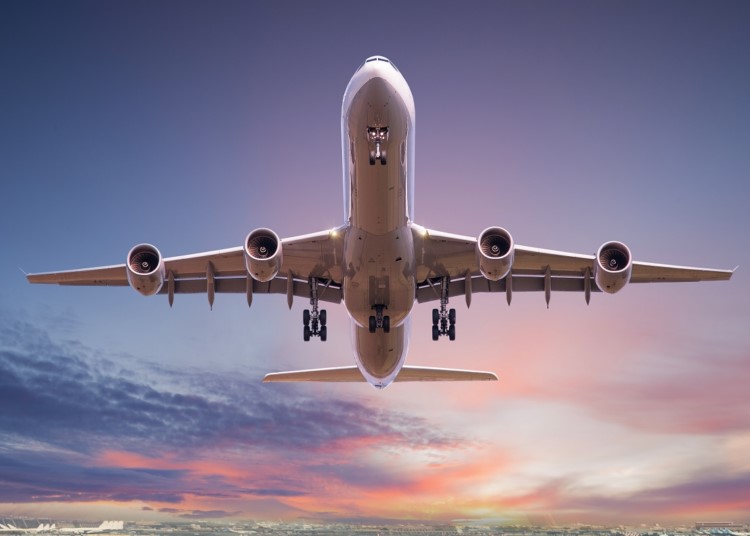Nigeria’s aviation stakeholders have voiced strong opposition to the recently introduced New Tax Act 2025, warning that the legislation could stifle the sector’s growth, breach international agreements, and exacerbate the financial burden on airlines already grappling with high operational costs and declining passenger numbers.
Concerns were raised during the Aviation Sector Enlightenment Initiative Business Webinar, organised by the Aviation and Allied Business Journal in partnership with the Nigeria Revenue Service.
The event convened airline operators, regulators, industry experts, and tax authorities to assess the potential impacts of the new law, which removes the long-standing Value Added Tax exemptions on aviation services and assets.
Dr. Samson Fatokun, Regional Manager for West and Central Africa at the International Air Transport Association, criticised the reforms, asserting that they contradict Nigeria’s international aviation obligations.
He referenced the ECOWAS Supplementary Act, signed by President Bola Tinubu on December 14, 2024, which exempts passenger and cargo transport from taxation effective January 1, 2026.
“Our president cannot sign a regional act, and our internal legislation counters it. We don’t know what we are doing as a nation,” Fatokun cautioned.
He further emphasised that Nigeria, as a member of both ECOWAS and the International Civil Aviation Organisation (ICAO), must adhere to international standards governing aviation taxation. Fatokun warned that additional levies could diminish the sector’s global competitiveness and discourage international airlines from operating in the country.
Echoing these concerns, Professor Mustapha, Nigeria’s first aviation lawyer, argued that the New Tax Act stands in direct conflict with the Civil Aviation Act 2022, which prohibits taxation on aviation-generated income.
“By virtue of sections 22 and 23 of the Civil Aviation Act 2022, no taxation can be deducted from the income of the aviation sector. The FIRS position contradicts this provision. If applied, it would amount to double taxation,” he said, calling for immediate legal review and clarification.
Similarly, aviation expert Samuel Caulcrick criticised the move to include Ticket Sales Charges (TSC) and Cargo Sales Charges (CSC) in the new tax regime. He described both as central to the financial lifeline of Nigeria’s aviation sector.
“The major funding of revenue in aviation is TSC and CSC. What that Act did was to tax it. This has choked the industry. It has choked freight businesses,” Caulcrick said, warning that the policy could collapse key revenue sources for the sector.
Private sector players also expressed concern. Nkechi Onyenso, Managing Director of Pathfinders International Limited, questioned the effect of VAT on ticket affordability and passenger demand.
“Airlines already have standard costs they must pay, but revenue comes only from passengers. If VAT is added, it will impact fares and potentially reduce traffic further,” Onyenso warned.
She called for broader consultation, pointing out that airlines are already contending with low passenger volumes, surging fuel prices, and ongoing foreign exchange instability.
In defence of the new tax policy, Mrs. Nkechi Umegakwe, Assistant Director, Tax Policy and Advisory at the NRS, explained that the reforms aim to streamline Nigeria’s tax system, expand the tax net, and bring the country in line with global practices.
“VAT is a consumption tax. Even the government pays VAT. Airlines are merely agents of collection,” she said.
Umegakwe acknowledged that operational costs may increase and that a temporary drop in passenger traffic could occur. However, she clarified that the cost implications would fall on consumers rather than operators. She also noted that the VAT exemptions introduced under the 2020 Finance Act as a COVID-era relief package have now been repealed.
“The feedback from this engagement has given us new insights, and FIRS is all about feedback,” she added, assuring participants of ongoing dialogue.
The mounting disagreement between government agencies and industry players underscores the fragility of Nigeria’s aviation sector. With multiple taxes, forex challenges, and subdued passenger traffic already plaguing the industry, operators fear the New Tax Act 2025 could deliver a serious blow to sustainability.
While the government maintains that the reforms are essential for modernising revenue systems, stakeholders are urging immediate engagement to align the legislation with Nigeria’s international commitments and prevent further strain on an already vulnerable sector.











